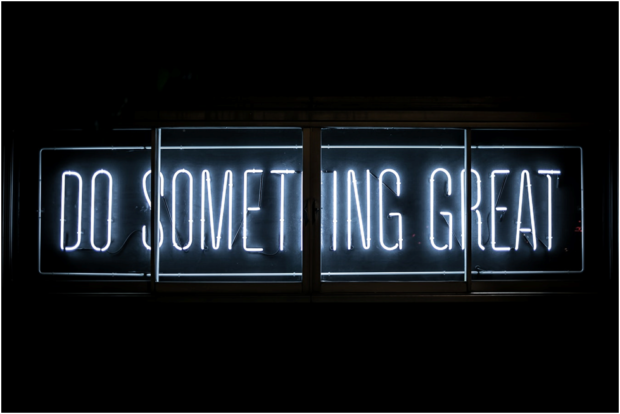How to Use LinkedIn Marketing like a Business Capitalist

LinkedIn is one of the most widely used social media networks worldwide. It has more than 610 million members with more than 303 million active users each month, rivaling platforms like Twitter and Instagram.
And it’s no surprise why LinkedIn is so popular – if you’ve used it recently, you already know how useful it can be to connect with clients, team members, and employees. It’s also a great tool to find jobs.
But did you know LinkedIn can be a popular marketing tool?
That’s right – LinkedIn is a social media network, after all!
Just as you can market your brand on Facebook and Twitter, you can attract new leads and customers on LinkedIn – you just need the right strategy.
In this guide, you’ll learn what makes LinkedIn an effective marketing tool. We’ll teach you powerful ways to reach new audiences with LinkedIn marketing and use it to grow brand awareness for your small business.
The Marketing Power of LinkedIn
You learned two key statistics about LinkedIn’s influence above, but there’s more than meets the eye to the world’s largest business network.
For example, did you know 92% of Fortune 500 companies and INC 5000 Fastest Growing US Companies use LinkedIn?
Or did you know that LinkedIn is responsible for 80% of B2B leads from social media? And 46% of social media leads for B2B websites come from LinkedIn?
As a small business owner or digital marketer, that means you’re missing out on a huge audience if you aren’t using LinkedIn as part of your social media marketing campaigns.
Another key thing to note about LinkedIn: for a social media platform, a relatively small percentage of the user base posts on their page. Out of the 303 million active users on LinkedIn each month, only 3 million share content. What does this mean for you?
It means you aren’t competing with as many people for traction. If fewer people are posting, you have less of a crowd to wade through for recognition.
Ultimately, LinkedIn is one of the best social media platforms for digital marketing – period. If you aren’t using it as part of your lead generation and outreach strategies, you’re missing out on a substantial portion of your potential audience.

How to Use Linkedin for Your Success
To be successful on LinkedIn, you need to follow a few simple strategies. Your goal is to make as many meaningful connections as possible, create a professional profile that represents your brand’s image, and post content you care about.
Let’s take a look at a few basic principles if you want to succeed on LinkedIn.
Complete Your Profile
Your company’s LinkedIn profile should tell leads everything they need to know about your brand. It should represent your vision and your personality.
To do this, you need to fill out your profile completely. This includes a professional profile image and an in-depth description of what your company does.
Remember: your profile is your first impression. Treat it like a job interview or a sales meeting. How do you want to present your brand to potential business connections and customers?
Connect, Connect, Connect!
Listen – there’s no rule that says you should only connect with people you know on LinkedIn. In fact, cold-connecting with people can be one of the best ways to connect on Linkedin to generate awareness for your brand.
If you only add connections to people you know closely, you won’t benefit much from your interactions on LinkedIn. Sure – they may send you a post they like or forward an employee recommendation, but they don’t benefit your marketing campaign.
We’re not saying you can’t add people who are affiliated with your brand – by all means, connect with everyone you know on LinkedIn, too.
But if you only limit it to people you know, you’re missing out on a potential audience.

Optimize Your Profile for LinkedIn’s Search Engine
People are always searching for others on LinkedIn. Like Google, LinkedIn uses an algorithm to determine the rank of websites on its search engine results index.
How can you use this to your advantage?
Create a list of keywords that relate to your brand and include them on your page. For example, a digital marketing agency might feature words like ‘content marketing’ and ‘growth hacking’ in their profile to show up when someone searches for those phrases.
Advanced Tactics for LinkedIn Lead Generation
Once you get the basics of LinkedIn marketing, you can apply more advanced tactics to reach a larger audience and improve your conversions.
Use LinkedIn to Get Email Subscribers
Remember what we said above about connecting with everyone? If you follow that advice, this tip can be highly profitable.
For every person, you connect with, send them a message thanking them for the connect. Then respectfully ask them to check out your content and sign up for your email list – it’s that simple!
This method is free and effective. Don’t let your hesitation for cold-messaging hold you back – worst case scenario, your leads don’t sign up!
Post Exceptional Content
Did you just publish your best blog post? Share it on LinkedIn! Your connections and followers will see it and it can generate traffic to your site.
As we mentioned above, a relatively small proportion of LinkedIn users quality post content. Take advantage of this and post your best content as often as possible.
Claim Your Custom LinkedIn URL
By default, LinkedIn will assign you a generic, randomly generated URL. Make it easier for your customers to find you by claiming your custom URL and using it to represent your brand.
Final Thoughts
LinkedIn is one of the most effective marketing tools on the web but it’s often overlooked by marketers and small business owners. With goal-driven strategies and consistent effort, you can use LinkedIn as a powerful tool to generate brand awareness and increase your audience throughout organic reach.
This guest post was authored by Marsha Kelly

Marsha Kelly sold her first business for more than a million dollars. She has shared hard-won experiences as a successful serial entrepreneur on her Best4Businesses blog, where she also regularly posts business tips, ideas, and suggestions, as well as product reviews, for business readers. As a serial entrepreneur, Marsha has done “time” in corporate America. Marsha has learned what products and services really work well in business today. You can learn from her experiences to build your business.

